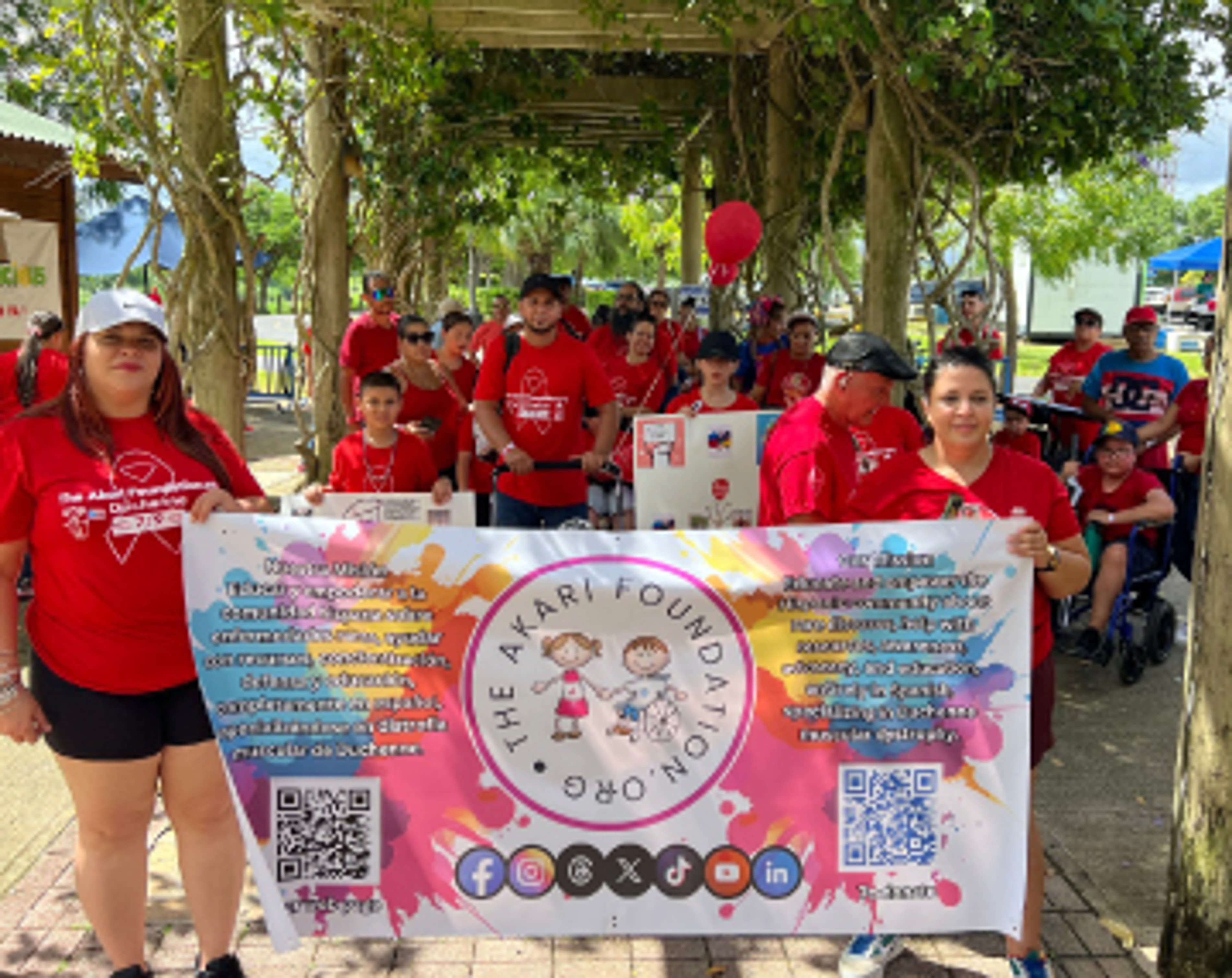At Entrada, we recognize that disparities in many forms add to the challenges for people living with serious diseases, including Duchenne muscular dystrophy (Duchenne). In an effort to uplift communities who are often overlooked by today’s healthcare system, we launched Entrada DREAMS.
DREAMS is a competitive annual grants program designed to fund efforts that better identify, understand and reach the entire Duchenne community.
The impact of DREAMS has already been brought to life by the incredible organizations selected as the first grant recipients in 2023. Now more than a year later, we’re shining a light on their efforts to support all members of the Duchenne community and their progress made since receiving the inaugural grant.
About Parent Project Muscular Dystrophy
PPMD is a patient advocacy organization fighting to end Duchenne by helping those living with the condition to lead longer, stronger lives. For over 30 years, PPMD has been working tirelessly to ensure every family impacted by Duchenne has access to expert healthcare providers, transformative treatments and a community of support. PPMD convenes the Duchenne community to advocate to ensure continued funding of Duchenne research. These efforts have contributed to eight U.S. drug approvals and ten years added to the average lifespan of individuals living with Duchenne. Despite this progress, PPMD has identified a critical and persistent challenge for the community – a lack of diversity in Duchenne clinical trials.

Lack of diversity in Duchenne clinical trials
The 2023 DREAMS Grant provided critical funding that has enabled PPMD to continue an ongoing multi-part effort to drive increased diversity in clinical trials for Duchenne. Through this effort, PPMD set out to better understand the hurdles that underrepresented families face to join trials, while implementing strategies to ensure families of all backgrounds have the knowledge and resources needed to participate in trials moving forward.
PPMD partnered with The Ohio State University College of Medicine to conduct a study in which researchers traveled to a Duchenne clinic in Texas to meet with clinicians and families impacted by Duchenne. Through in-person and virtual interviews, investigators gained insights into attitudes toward trial participation and recruitment barriers among socio-demographically underrepresented families.
“With clinicians, there can be inherent biases regarding a family's ability to participate in clinical trials—whether it's their capacity to attend visits or meet the study requirements,” said Eric Camino, PhD, Vice President, Research & Clinical Innovation. “For families, uncertainty and limited access to educational resources can create additional barriers, sometimes compounded by a degree of mistrust.”
A major challenge for families is the absence of educational resources in their native language, making it incredibly difficult to make informed decisions about trial participation.
One caregiver shared their perspective, “They told me that they would send me a packet in Spanish explaining everything…but in the end, I didn’t receive anything. Since then, I have always had that mistrust with clinical trials and enrolling my son in them.”
The study, which was published in the Orphanet Journal of Rare Diseases in May 2024, identified clear, actionable gaps in the current approaches to Duchenne trial recruitment. PPMD has already taken steps in response to the study’s findings, including increasing Spanish resources on the PPMD website and leveraging Wordly AI as a translation service for meetings and webinars.
An effort at understanding
PPMD also leveraged the DREAMS Grant to engage with families and learn more about their experience with clinical trial participation through its meetings series, Understanding the Needs of Black Families in Duchenne.
A major learning was the discrepancy in time to diagnosis amongst Black families, “I was surprised to learn about the number of families that had a late diagnosis – from age seven to 10 to 13,” said Alexis Hazlett, RN, MSN, CPN, Senior Director, Clinical Care & Education. “This is despite the families seeing medical providers and trying to get a diagnosis, but being brushed off.”
The average age for those diagnosed with Duchenne is four years old, so receiving a diagnosis up to nine years later than most, can mean missing out on the chance to participate in trials that have age limitations.
Families also emphasized the difficulty of balancing trial participation with finding reliable childcare and managing work commitments.
“A lot of these families were single parent or multi-children households,” said Alexis. “Some caregivers struggled to find childcare, had limited paid time off, or were hourly workers, so there can be a significant number of social factors contributing to the challenges of participating in a clinical trial.”
Data-driven collaborations
Another priority of PPMD that the DREAMS Grant has been able to support is the organization’s data-driven collaborations.
Back in 2015, PPMD partnered with The Critical Path Institute (C-Path) to launch the Duchenne Regulatory Science Consortium (D-RSC), an integrated database of patient-level clinical data from Duchenne studies. Since then, they’ve developed the DMD Clinical Trial Simulation Tool, which pulls from nearly 10 years of patient data to detect differences in performance across various cohorts.
Since receiving the DREAMS Grant, PPMD has tapped into insights from the DMD Clinical Trial Simulation Tool to better understand participation and outcomes in clinical trials across race and ethnicity.
PPMD has also partnered with researchers at RTI International and MD STARnet to evaluate the relationship between population genetics of Duchenne and Becker muscular dystrophies (DBMD) and the prevalence of DBMD among racial groups.
“We have made progress on this initiative, thanks to the direct funding provided by the Entrada DREAMS Grant that was awarded at the end of 2023,” said Kaylan Moitoso, Chief Business Officer.
Lessons learned and looking ahead
While evaluating data is a critical part of understanding the lack of diversity in Duchenne clinical trials, the PPMD team emphasized that the interactions with patients and families made possible by the DREAMS Grant have proven to be most valuable.
“The opportunity to engage directly with families has been incredibly impactful for us,” said Kaylan. “I wouldn’t say the same for the families just yet, because I want to hold us accountable—we still have so much work to do. But having the time and space for meaningful engagement has allowed us to learn a great deal.”
The PPMD team plans to continue its efforts to diversify clinical trial participation for those with Duchenne, and ensure that all families feel supported and heard regardless of any socioeconomic factors.
“As we bring on more partners to support these efforts, we hope to build on what we’ve learned and continue expanding our impact,” said Kaylan. “While much of our focus has been on race and ethnicity in the context of DEI, we recognize that diversity extends far beyond that. Socioeconomic challenges in certain regions of the country are significant, and we must address those barriers as well.”
For anyone looking to learn more about PPMD and support its efforts to end Duchenne for all, visit the PPMD website.
Interested in applying for a future DREAMS Grant? Please visit the Entrada DREAMS Grant Program webpage where you can find applications for this year’s program.


